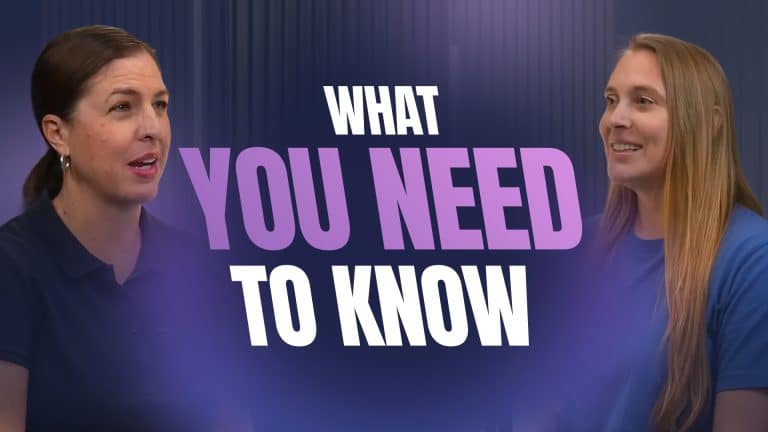Table of Contents
Creating a trust is a crucial step in protecting your family and assets. But here’s what many people don’t realize: it’s not a one-and-done document. As life evolves, so should your estate plan. Whether it’s a major move, marriage, new baby, or a health scare, updating your trust ensures your loved ones are protected.
Think of your trust like a living document that needs to grow and adapt with your life. What worked for you ten years ago might not serve your family’s needs today. Here’s a comprehensive guide to when and why you should update your trust—and what happens if you don’t.
Your Child Just Turned 18? Time to Revisit Your Plan
As we head into fall, one of the biggest triggers for trust updates is children leaving home for college or turning 18. This isn’t just a birthday milestone—legally, your child is now an adult. And that changes everything.
Here’s what most parents don’t realize:
- You no longer have automatic authority to make their medical or financial decisions
- Bank accounts and healthcare information may be off-limits without proper documentation
- If your child ends up in the hospital, their boyfriend or girlfriend might have just as much legal right to information as you do
What You Need to Do
Have your young adult sign medical and financial powers of attorney immediately. This means your child is giving you power of attorney to act as their agent if something happens to them. You’ll be able to access their healthcare information and make critical decisions when they can’t.
Remember: Powers of attorney are often the most overlooked documents in estate planning, yet they’re among the most important. Once you need them, it’s usually too late to get them. These are definitely preemptive documents.
Also, check that your trust reflects their new legal adult status and any changes in how you want assets distributed.
You Got Married or Divorced
Marriage or divorce changes far more than your relationship status—it can completely alter your estate plan.
Marriage Considerations
Before you say “I do”, consider the legal implications:
- In community property states, assets acquired after marriage may be shared property
- Your new spouse could gain rights to assets in your existing trust
- Commingling assets (like both contributing to a house or business) can convert separate property to community property
If you have a trust before marriage and start commingling property—meaning you both live in and contribute to a house that was previously held in trust—your spouse may gain rights to that property from the date of marriage forward.
What to Update
When you marry or divorce, update your trust to reflect:
- New or former spouses
- Separate vs. community property designations
- Changes to beneficiaries and successor trustees
- Asset ownership and contribution arrangements
Pro tip: It’s best to speak with an estate planning attorney before marriage to plan ahead, but if you don’t, definitely consult one afterward to ensure everything is properly structured.
You Had a Child, Adopted, or Gained Stepchildren
Growing your family is one of the most important reasons to update your trust. Here’s what many people miss:
The Legal Reality
If you’ve added children to your family since creating your trust, you should:
- Add new biological or adopted children by name in your trust documents
- Clarify the legal status of stepchildren or long-term dependents you’ve been caring for
Critical point: Just because you’ve been caring for a child since they were five doesn’t mean they’re legally included in your estate plan. If they’re not adopted and you simply refer to “my children” in your trust, that child you’ve raised and love may be legally excluded from your estate.
Why Names Matter
We often see clients say, “I have four kids—three are biological, one I’ve been taking care of since she was five.” When we ask if she’s adopted, the answer is usually no. Here’s the problem: she won’t be included, and the law won’t provide for her unless you specifically name her or legally adopt her.
The law follows legal relationships, not emotional ones. Make sure your trust reflects both your heart and legal reality.
You Moved to a New State
Trust laws vary significantly by state. Even if your current trust is legally valid, administration could become messy or expensive.
Why State Matters
- Your new state might interpret certain clauses differently
- Local property or probate laws could affect how your trust is executed
- Tax implications may change based on your new state’s laws
What to Do
Hire an estate planning attorney in your new state to review your trust to ensure it complies with local laws. Your existing trust is still valid if it was properly executed in your previous state, but you want to make sure it’s optimized for your new jurisdiction.
Timeline: There’s no urgent deadline, but don’t let it slide indefinitely. The sooner you address it, the better protected you’ll be.
There Was a Death or Family Falling Out
Life happens. People pass away, relationships change, and sometimes families have falling-outs.
Common Scenarios
- A named beneficiary, trustee, or agent may no longer be available
- You may want to remove someone from your plan due to personal conflicts
- A key person in your plan has passed away
The Fix
Keep your documents updated to reflect your current wishes and remove any ambiguity. While good estate planning documents should have contingent plans for these situations, why leave things unclear when you can update them to reflect exactly what you want?
Remember: Whether it’s the death of a beneficiary, successor trustee, or anyone named in your documents, it’s a good time to review and update your plan.
You Had a Health Scare
A diagnosis, major accident, or medical event should prompt one critical question: Is everything in order?
The Wake-Up Call
Health scares—whether yours or someone close to you—serve as powerful reminders that we’re not immortal. We all have an expiration date; it’s not a matter of if, but when.
Common triggers include:
- Personal health diagnosis or medical emergency
- Family member’s health crisis
- Friend’s unexpected accident or death
- Witnessing someone’s family struggle because they didn’t have their affairs in order
Questions to Ask Yourself
- Are your powers of attorney current?
- Do your documents reflect your actual wishes?
- Is everything organized so your family can find what they need?
Don’t wait. Estate planning is proactive. Once you need the documents, it’s usually too late to make changes.
You Acquired or Sold Major Assets
Big financial changes should always trigger a trust review.
Examples of Major Asset Changes
- Bought or sold a home, business, or land
- Inherited property or other significant assets
- Transferred ownership of key business interests
- Started or sold a business
Why This Matters
Unequal assets like property or business shares can create family tension or legal complications if not properly addressed in your trust.
Consider this scenario: You’re “land rich, cash poor.” You own valuable property but limited liquid assets. When you try to divide your estate equally among children, it’s much easier to divide cash than to divide a business, farm, or valuable real estate.
Business Considerations
If you’re a business owner, your trust needs special attention:
- Is the trust listed as an owner of your business?
- Do you have a buy-sell agreement with business partners?
- How will business roles be divided among heirs?
- What happens to the business if you become incapacitated or die?
Reality check: A handshake deal is not a succession plan. We see this all the time—business partners who’ve been running a company together for years with nothing documented. That works fine until something happens to one partner. Then their family is left trying to figure out business arrangements that were never put on paper.
Your Trust Isn’t Properly Funded
Here’s a sobering fact: The number one reason trusts fail is that they’re not properly funded. Creating a trust document isn’t enough—if your assets aren’t titled in the trust’s name, they won’t avoid probate.
Common Funding Mistakes
- Real estate never deeded into the trust
- Bank accounts without trust designation or trust ownership
- Businesses not listed under trust ownership
- Investment accounts still in individual names or with no beneficiary
The Reality Check
If you look at your trust document and it lists your property, bank accounts, vehicle, and house, that does not mean those assets are actually in the trust. Listing them in the document is just the first step.
You need to actually:
- Re-title your real estate in the trust’s name
- Change bank account ownership to the trust
- Update investment account titles
- Add the trust as owner of business interests
Important: Just because assets are listed in your trust document doesn’t mean they’re properly titled. You need to see actual ownership documents (deeds, account statements, titles) that show your trust as the owner.
You’re the Only One Who Knows Where Everything Is
Even if your trust is perfectly updated and funded, disorganization can derail your entire estate plan.
The Practical Reality
Think about this scenario: You’re the person who pays all the bills, knows where everything is, handles all the financial matters, and manages household affairs. If something happens to you, your family faces a double burden:
- Dealing with grief and loss
- Trying to piece together your entire financial life
Questions Your Family Will Face
- Who pays the bills, and where do they come from?
- What accounts do we actually have?
- Where are the passwords for everything?
- Who do we call for insurance, repairs, or other services?
- What bills are automatically withdrawn from which accounts?
The Solution
Keep comprehensive records organized and accessible. Consider these practical steps:
- Create a master list of all accounts, passwords, and important contacts
- Keep important documents in a secure but accessible location
- Use a digital lockbox system like our Legacy Vault, where you can store and update information regularly
- Make sure at least one trusted person knows where to find everything
Pro tip: If it’s hard for you to organize all your financial information, imagine how difficult it will be for someone who has no idea what you have or where you keep things.
What You Can Handle Without an Attorney
Not every change requires a legal visit. Here are some things you can typically handle on your own:
Simple Asset Additions
- Buying a house? Just make sure it gets titled in the trust by giving your trust certificate to the title company
- Refinancing? The lender may require you to take the property out of the trust temporarily, then re-title it back in after closing
- Buying a vehicle? Add it to the trust using your trust certificate
- Opening new bank accounts? Add the trust as owner or beneficiary
When to Get Professional Help
If you’re unsure or the change is substantial, it’s worth consulting with an estate planning attorney. Better to spend a little on professional advice than to create problems for your family later.
Key Life Events That Always Warrant Professional Review
While some changes you can handle yourself, these situations should always trigger a conversation with your estate planning attorney:
- Major life transitions (marriage, divorce, death in family)
- Significant asset changes (buying/selling businesses, inheriting substantial assets)
- Moving to a new state
- Health scares or disability
- Changes in family structure (new children, adoptions, family conflicts)
- Business ownership changes
- Substantial increase or decrease in net worth
The Bottom Line: Regular Reviews Are Essential
Review your trust every 3-5 years or after major life events. This isn’t just about legality—it’s practical wisdom that can save your family tremendous stress and expense.
Remember These Key Points
- Trusts aren’t “set it and forget it” documents—they need regular maintenance
- Life changes should trigger trust reviews—don’t wait for the “perfect” time
- Funding your trust is just as important as creating it—make sure assets are properly titled
- Organization matters as much as documentation—keep records where your family can find them
- When in doubt, consult a professional—it’s better to ask than to leave problems for your family
Take Action Today
Don’t wait for a crisis to review your estate plan. Look at your current situation and ask yourself:
- When did I last review my trust?
- Have there been any major changes in my life since then?
- Are all my assets properly titled in the trust?
- Would my family know where to find everything if something happened to me?
If you answered “I don’t know” or “probably not” to any of these questions, it’s time to take action. Your future self—and your family—will thank you for being proactive rather than reactive.
Estate planning is about more than documents—it’s about peace of mind. Take the time now to ensure your trust reflects your current life and wishes. Your family’s future depends on the decisions you make today.
Frequently Asked Questions
1. How often should I update my trust?
It’s advisable to reassess your trust arrangements every few years (typically 3-5 years) or following significant personal changes like getting married or divorced, welcoming children, acquiring real estate, or moving to a different state.
2. Do I need to update my trust if I move to another state?
Yes. While your trust may still be valid, each state has its own probate and property laws. Having your trust reviewed ensures it functions properly in your new jurisdiction.
3. What happens if I don’t update my trust after a divorce?
Your ex-spouse could still have some control, leading to legal battles or unintended asset distribution. Always revise your trust immediately after separation or divorce.
4. Are stepchildren automatically included in my trust?
No. Unless they are legally adopted or specifically named, stepchildren may be excluded from your estate plan. Always name each intended beneficiary explicitly.
5. What does it mean to ‘fund’ a trust?
Funding a trust means transferring ownership of assets—like property, bank accounts, and businesses—into the trust’s name. If assets aren’t titled properly, they may still go through probate.
6. Do I need a lawyer to update my trust?
Not always. For minor changes—like retitling a car or adding a new account—you can make updates yourself. But major life or legal changes should be reviewed by an estate attorney.
7. What if I forgot to add a new child to the trust?
They may inherit, but it’s still important to update your trust as soon as you have or adopt a child to ensure they are legally protected.
8. Is my trust still valid if I created it in another state?
Yes, if it was legally executed. But state-specific laws might complicate administration, so it’s wise to review and possibly amend it after moving.
9. Can I update my trust if I have a serious health condition?
Yes, but timing matters. Once you become legally incapacitated, changes can no longer be made. It’s critical to update all estate documents while you still have full mental capacity.
10. What happens if no one knows where my trust documents are?
If no one can find your trust, your estate could end up in probate. Keep your records organized and make sure your successor trustee knows where to access them.




